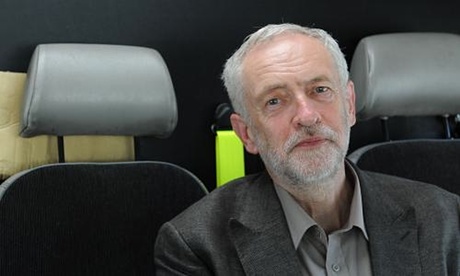On this basis, Corbyn’s fellow leadership contender, Liz Kendall, was entitled to label him a retro-politician, peddling “Bennism reheated, a throwback to the past .
We are the party of the future not a preservation society.” Her point was well made. Yet such attacks slide off the Teflon Trot because they misconstrue the role of history in contemporary culture.
When Tony Blair became Labour leader, in the wake of the cold war’s end, the centre-left was enjoying an unexpected global recovery. After the fall of the Berlin Wall and the initial spread of democracy and globalisation, the contrast between left and right was replaced by a struggle between old and new. When Blair announced his intention to transform his party, he simply renamed it New Labour.
When the freshly elected Tory leader, David Cameron, wanted to unsettle his veteran opponent at his first PMQs in December 2005, he said of Blair: “He was the future once.” Yet we seem to have moved on even from that division between nostalgia and modernity. Corbyn’s appeal to his party is not diminished by the association of his ideological position with almost every disaster that befell Labour in the 80s.
According to the new rules, the candidate’s past is not only struck from the record but irrelevant. And if there is a shift, it is not confined to Labour, or the UK. In the US, the boorish Donald Trump is eclipsing his Republican rivals for the presidential nomination by a combination of insult and disdain.
When Fox News’s Megyn Kelly, one of the moderators at last week’s GOP debate, asked the property tycoon how someone who had “called women you don’t like fat pigs, dogs, slobs and disgusting animals” could claim to have “the temperament of a man we should elect as president”, Trump resorted to the weakest, most over-used counter-claim.
I think the big problem this country has – is being politically correct.” He then asserted that the US was being left behind in what David Cameron used to call the “global race” while it fretted daintily about giving offence.
The structure of western politics is in radical transition. In May, the British general election was won in the most conventional manner imaginable. As Blair had warned in an interview with the Economist in January, it proved to be an election “in which a traditional leftwing party competes with a traditional rightwing party, with the traditional result”.
Yet alongside this conventional system a quite different form of politics is emerging, with a quite different structure. To borrow the jargon of semiotics, it is “synchronic” (cross-sectional) rather than “diachronic” (part of a serial narrative, with a before and after).
It is governed by what Martin Luther King, in a very different context, called “the fierce urgency of now”. It recognises that today’s voters are the children of the digital Big Bang, bombarded with an unprecedented blitz of information, data and noise.
They exist in bubbles of digital mayhem, less bothered by the future and the past than by getting through life moment to moment. Their universe is defined by the immediate and the deafening data stream.
The contents of that stream are not ideologically coherent but they are identifiable. Corbyn, for instance, speaks to the fear that global capitalism, for all its success, has made serfs of us all, no longer citizens but the puppets of planetary corporations that are accountable to none.






